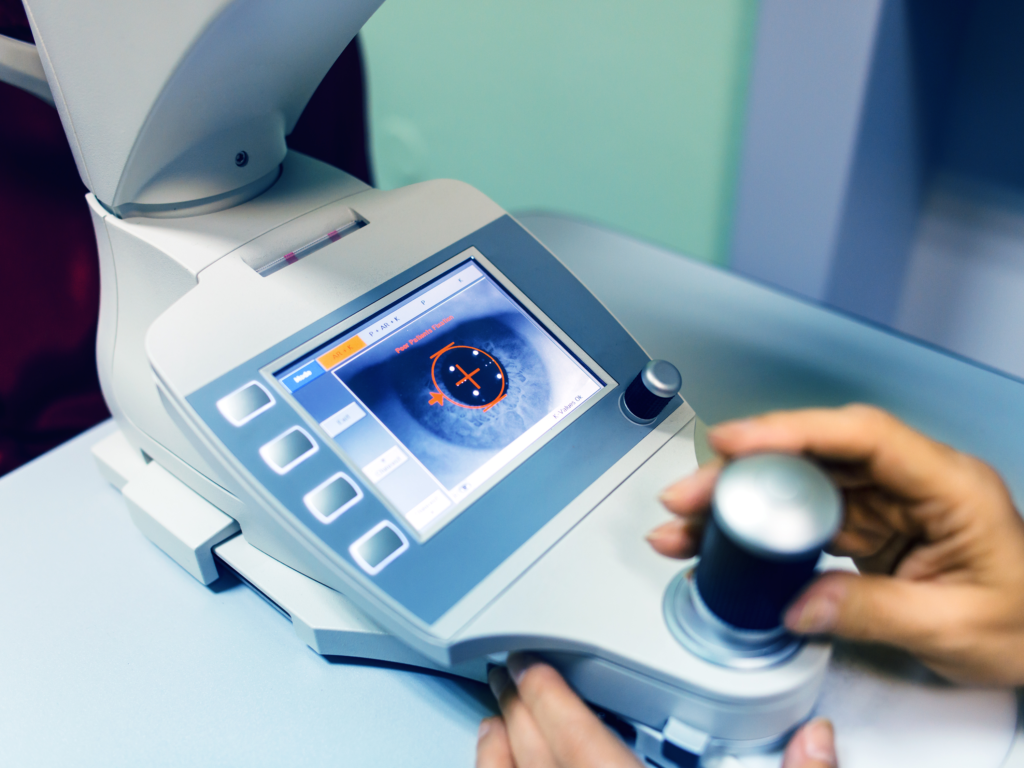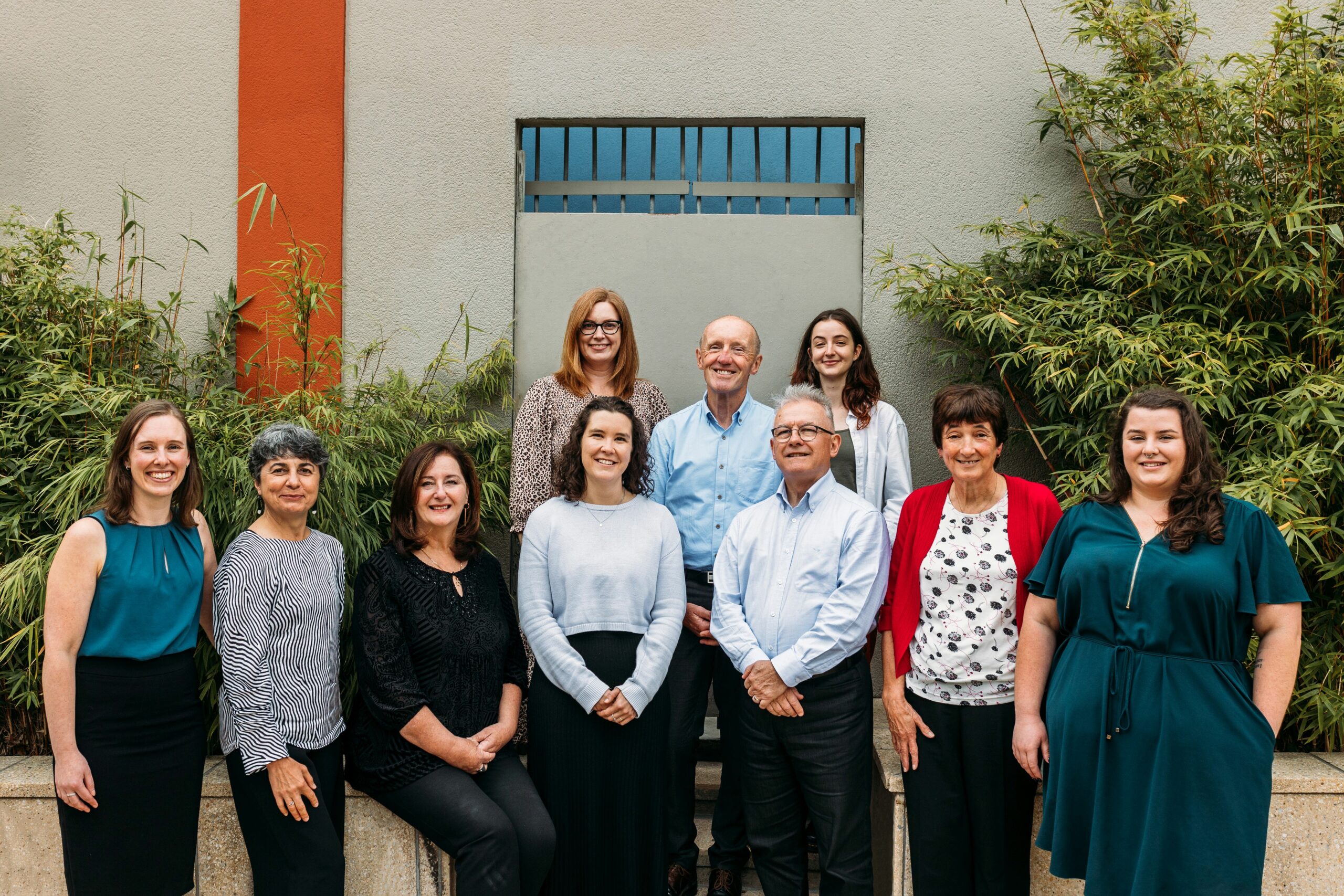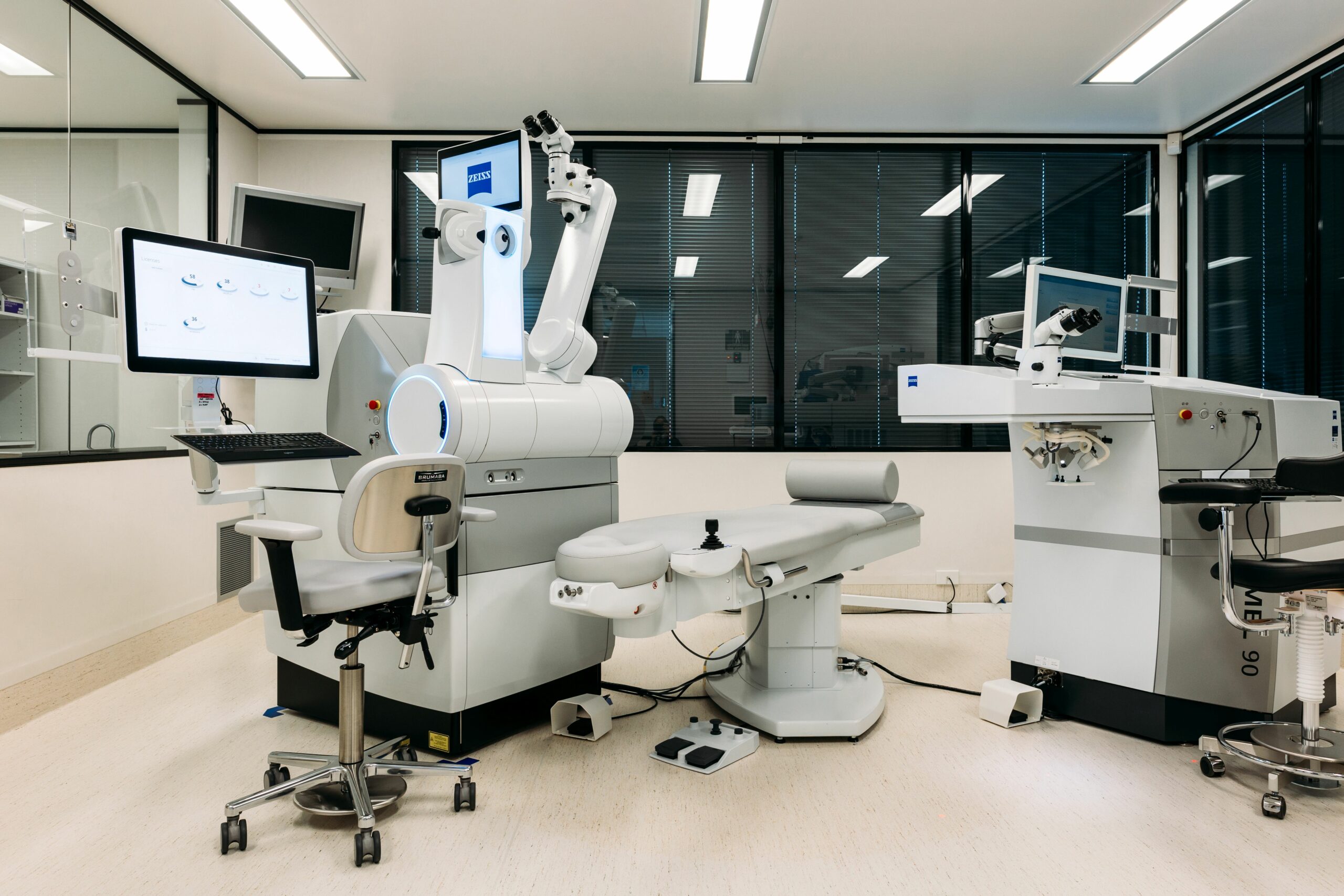Most people thinking of having laser vision correction surgery will be suitable and can expect to have an excellent outcome. However, some people have conditions affecting their eyes that make them unsuitable for laser eye surgery. Conditions such as cataracts, lazy eye, and severe dry eyes will likely mean that you are unsuitable. This blog will discuss two other conditions which can make you unsuitable for laser eye surgery. These are pterygiums and corneal scars.
To safely carry out laser eye surgery, whether it is SMILE, LASIK, or PRK, the cornea needs to be clear and free of opacities and have a regular shape. These two conditions can affect the cornea and make you unsuitable. Although depending on their location you may still be suitable for laser eye surgery.
What is a Pterygium?
A pterygium (plural pterygia) is a wing-shaped growth on the side of the eye; usually on the side closest to the nose. Pterygia grow from the white tissue (conjunctiva) on the side of the eye onto the cornea. In New Zealand and Australia, pterygia are very common. Excessive UV light exposure causes pterygia, so it makes sense they are common in countries with high UV. They vary in size, some being quite small, barely extending onto the cornea, while others can grow so large that they extend up to halfway across the cornea, severely affecting vision.
Pterygia can prevent laser eye surgery because they cause an irregular corneal shape and opacity of the cornea. These two things in turn can interfere with the action of the laser. However, a very small pterygium may not interfere with having laser eye surgery. If you are unsuitable for laser surgery, you will be told about alternative vision correction options.
In some cases, where the pterygium is moderately sized, surgical removal of the pterygium may allow laser eye surgery to be safely carried out. The eye surgeon will discuss this with you at your laser suitability assessment if it is an option.

What is a Corneal Opacity?
Corneal opacities or scarring are very common. They can be caused by injuries, infections from viruses or bacteria, and in some cases are congenital. These can interfere with laser surgery because the opacity prevents the laser beam from passing into the corneal tissue. This is an issue, particularly with SMILE and LASIK surgery, where the Visumax laser works by splitting corneal tissue. A faint corneal scar or opacity may not cause any problems, however. We have instruments that can measure how dense the scar is and its location. This allows us to determine if we can carry out SMILE or LASIK, despite the scar.
PRK surgery is much less affected by corneal scarring as it is carried out entirely on the surface of the eye. If your cornea has a scar but has a normal shape and is otherwise healthy, you may be a good candidate for PRK despite not being suitable for LASIK or SMILE.
What can you do to correct vision if you have corneal scarring or a pterygium?
Finding out that you are unsuitable for laser eye surgery because of these conditions can be very frustrating. Fortunately, in many cases, there are things that can be done to allow vision correction surgery to be carried out. In some cases, this may mean that a non-laser procedure will be necessary.
Pterygium
If a pterygium is relatively small, it may not prevent you from having LASIK or SMILE surgery carried out. However, you may need to surgically remove a bigger pterygium before laser eye surgery. This will allow for successful laser eye surgery. If a pterygium is large or has damaged the underlying corneal tissue, laser eye surgery may not be possible even after removal. In this case, you will need to consider an alternative procedure.
Corneal scarring
A corneal scar that is not located in the central cornea and is not reducing best-corrected vision may still allow you to have successful laser surgery. If the scar or opacity is very opaque or is reducing best-corrected vision, a corneal transplant may be necessary to restore good vision.

Alternatives to laser eye surgery
There are two alternative procedures that give excellent visual outcomes if laser is not suitable. If you have good corrected vision but a corneal condition preventing safe and successful laser eye surgery you can consider these options.
Phakic Intraocular lens (PIOL) implantation
PIOLs are artificial lenses that correct vision, also known as implantable contact lenses (ICL). They are placed inside the eye – think “a permanent contact lens which is placed inside the eye”. For decades PIOLs have been used to correct short-sight, long-sight, and astigmatism. They can give excellent vision, even in a situation where a corneal condition prevents safe laser eye surgery from being done; as they do not involve operating on the cornea.
The downsides are:
- PIOL implantation is more expensive than laser eye surgery.
- It is also more invasive. As surgery is carried out inside the eye rather than externally on the cornea.
Refractive lens exchange (RLE)
RLE is an identical procedure to cataract surgery. Although it is used to treat cataracts in seniors it can also be used to correct vision. Your surgeon removes the normal lens of the eye and replaces it with an artificial lens, called an IOL or intraocular lens, hence the term “lens exchange”. The strength and design of the IOL is chosen to correct the eye’s focusing error and can be used to correct short sight, long sight, and astigmatism. In addition, you can use lenses with an extended range of focus to provide good near as well as distance vision. Like PIOL implantation, RLE does not involve operating on the cornea. Making it a viable option when a corneal condition means laser eye surgery is not possible.
The downsides are the same as PIOL surgery – it is more expensive and more invasive.

How will I know if my cornea is OK for laser eye surgery?
Most corneal conditions such as scarring or pterygia will be detectable during the tests performed at your free laser suitability assessment with one of our technicians. In this case, the technician will usually advise you that you may not be suitable for laser eye surgery. They will also confirm this with the eye surgeon, Dr Andrew Logan. Occasionally, it will not be until you have a full medical assessment with the eye surgeon.
As is always the case, at the Wellington Eye Centre, your wellbeing is paramount, and we will not offer you laser eye surgery unless it is absolutely safe to do so.
Feel free to get in touch with the team at Wellington Eye Centre if you have any questions or wish to book a Free Assessment for laser eye surgery. To book a free assessment you can call us on 0800 733 327 or complete the contact form below.

Festive Season and Your Eyes

Vitamins For Good Eye Health and Vision

Help my eyelid is twitching!

Do you need to have eye exams after laser eye surgery?

Restasis Eye Drops for the Treatment of Dry Eyes

Meet The Team at the Wellington Eye Centre

Festive Season and Your Eyes

Naumi Studio Hotel Wellington

What to Expect on The Day of Surgery

